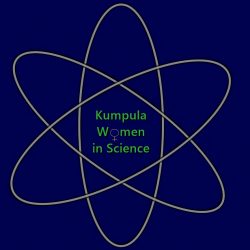I had the joy and privilege to participate in the Second LERU Gender Conference, 14 – 15 June 2018 in Zurich Switzerland (link) with the kind support of Finnish Cultural Foundation (Suomen Kulttuurirahasto).
The special theme of the conference was implicit bias, or unconscious bias, in Academia. Dr. Emma Terämä presented the same theme at the annual meeting of the Helsinki Association of Women Researchers, more info here. Recently, LERU (League of European Research Universities) has published an interesting report: ”Implicit bias in academia: A challenge to the meritocratic principle and to women’s careers – And what to do about it”, see the report.
In general, unconscious biases are stereotypes about groups of people that others form without conscious awareness. Unconscious bias in assessing excellence is one of the major problems affecting women in science. Then, the gender discrimination takes place in subconscious level. It is an accumulative disadvantage playing a strong role in the recruitment, working conditions, career advancement, and research funding situations of women in Academia. Unfortunately, women are not any better towards other women, especially if they themselves have been successful with their careers.
Changes in the culture have proven to be hard and slow. This is visible e.g. in the “gender scissors”, see below. The career position is related to money, power and status – and the situation have remained practically the same for the last 20 years. The competence, ambition and priorities of women researchers keep on being questioned although hundreds of studies and metastudies have found that in science there are no systematic gender differences in anything. The sad story in Academia is that researchers tend to regard themselves objective, although the unconscious bias is especially strong when people are not cautious about it.
Implicit bias affects especially young women in the beginning of their careers. The post-doc stage is very important for staying in the Academia. For example, the strong – but questionable – requirement for international mobility at post-doc stage is probably the major contribution for the leaky pipeline, clearly visible in the “gender scissors”. Namely, family constraints affect especially young women. Furthermore, the experiences of sexual harassment, affecting mostly young females, may play a significant role, too.
Luckily, there are methods to change unconscious bias to conscious awareness. First, general consciousness about the existence and character of unconscious bias must be raised. This can be done via training. The role of construal and committed leadership is important, too. Other effective methods to fight unconscious bias include positive role models, mentorship programs, women’s networks, bias-free language, and structural changes in research institutes.
In this conference, some good practices and advice were discussed: Do not publicly look down or undermine other women! Do not listen or distribute rumors or “hear-says”, especially in evaluations! Give recommendations emphasizing professional skills and excellency over character and temperament! And last but not least: Although important, it is not enough just to establish women’s networks / equality officers / antibias training / whatever written rules and formal policies – and imagine that the issue is solved. Gender equality is a process. Little things matter. Be courageous!
More info about implicit bias: watch this video.


